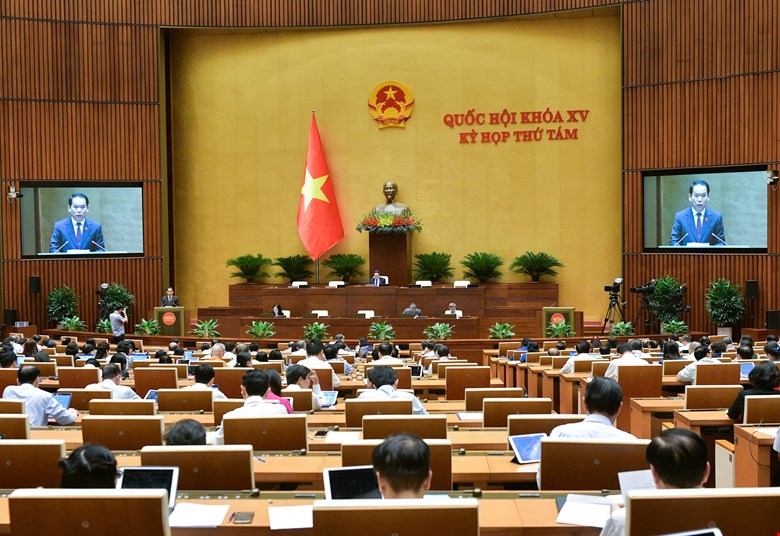Continuing the 8th Session of the 15th National Assembly, on the afternoon of October 25, Chairman of the National Assembly's Law Committee Hoang Thanh Tung presented a report explaining, accepting and revising the draft Law on Notarization (amended).
According to Chairman Hoang Thanh Tung, some opinions agree with the draft law not regulating the types of transactions that must be notarized in the Notary Law.
Some opinions suggest adding regulations on types of transactions that must be notarized such as transactions on real estate; transactions on registered assets; transactions related to enterprises.
According to the Standing Committee of the National Assembly, our country's law stipulates mandatory notarization for a number of important transactions related to land use rights, home ownership rights, some other types of assets that require registration of ownership and usage rights, and a number of other important transactions.
Transactions that must be notarized are currently regulated in relevant laws such as the Civil Code, Law on Marriage and Family, Land Law, Housing Law, Real Estate Business Law and a number of sub-law documents...
The draft law does not stipulate the types of transactions that must be notarized, but focuses on regulating issues related to notaries and notary practice organizations.

During the process of discussing and receiving and editing this content, there are two types of opinions:
The first type of opinion agrees with the Government's view, not specifying the types of transactions that must be notarized in the Notary Law to avoid duplication with the provisions of specialized laws.
The second type of opinion suggests specifying the list of transactions that must be notarized in the Notarization Law to ensure transparency and convenience in the application of the law by people and businesses.
The option of not specifying the types of transactions that must be notarized will create more flexibility for amending regulations on transactions that must be notarized in other legal documents, to suit reality and ensure the stability of the Notarization Law.
The limitation of this option is that notarized transactions are regulated in many different legal documents, making it difficult for people to grasp and comply with legal regulations.
The option of specifying the list of transactions that must be notarized has the advantage of ensuring transparency and convenience in applying the law. However, the limitation is that it will legalize some provisions of decrees and circulars, which are under the authority of the Government and ministries, and will not ensure the stability of the law when it is necessary to adjust the content and scope of transactions that must be notarized.
Based on the analysis of advantages and limitations, the Standing Committee of the National Assembly proposed that the National Assembly incorporate the positive points of both types of opinions to revise this content.
Accordingly, Clause 2, Article 1 is supplemented to stipulate the criteria for determining transactions that must be notarized, specifically: “2. Transactions that must be notarized are important transactions that require a high level of legal security and are required by law to be notarized”.
The Government is assigned to direct the review of notarized transactions currently regulated in current laws, decrees and circulars to amend and supplement them according to its authority and propose competent authorities to amend and supplement them within 1 year from the effective date of this law.
This option ensures the stability of the Notarization Law because it does not specifically stipulate the types of transactions that must be notarized, and at the same time strictly controls these types of transactions because they must comply with the criteria prescribed in the Notarization Law.











